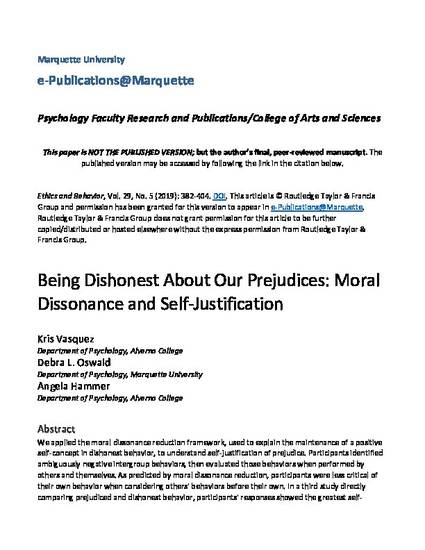
We applied the moral dissonance reduction framework, used to explain the maintenance of a positive self-concept in dishonest behavior, to understand self-justification of prejudice. Participants identified ambiguously negative intergroup behaviors, then evaluated those behaviors when performed by others and themselves. As predicted by moral dissonance reduction, participants were less critical of their own behavior when considering others' behaviors before their own. In a third study directly comparing prejudiced and dishonest behavior, participants' responses showed the greatest self-justification in the initial question about their behavior regardless of the content of the question, whereas subsequent questions showed more stability, consistent with the idea that participants adjusted their initial self-reports to avoid damage to their self-concepts.
Available at: http://works.bepress.com/debra-oswald/18/
Accepted version. Ethics and Behavior, Vol. 29, No. 5 (2019): 382-404. DOI. © 2019 Routledge Taylor & Francis Group. Used with permission.